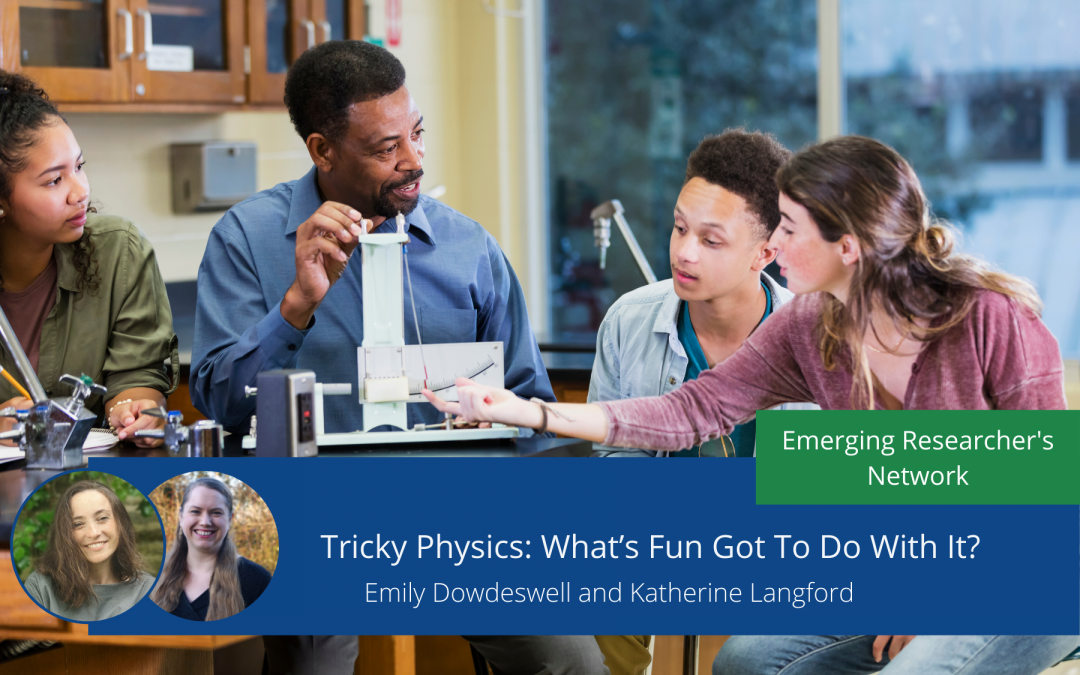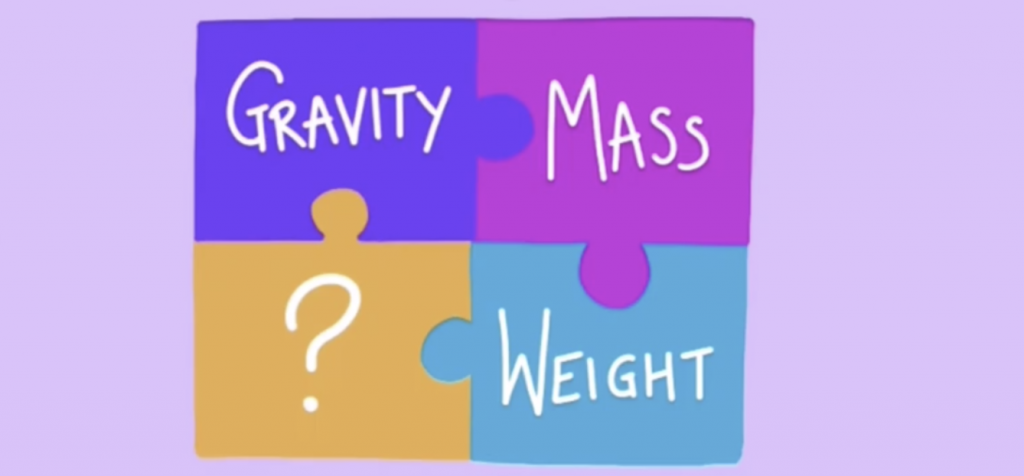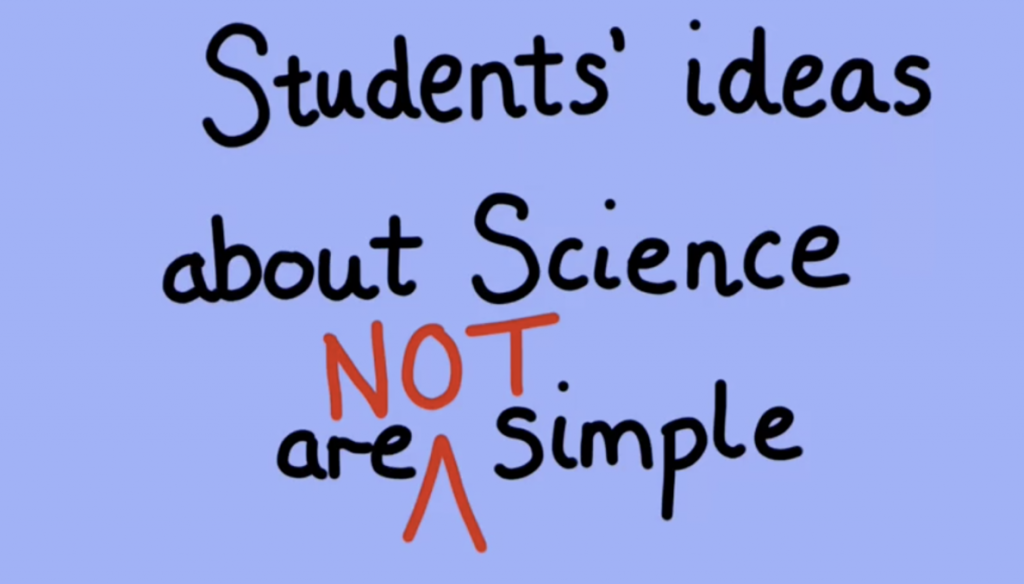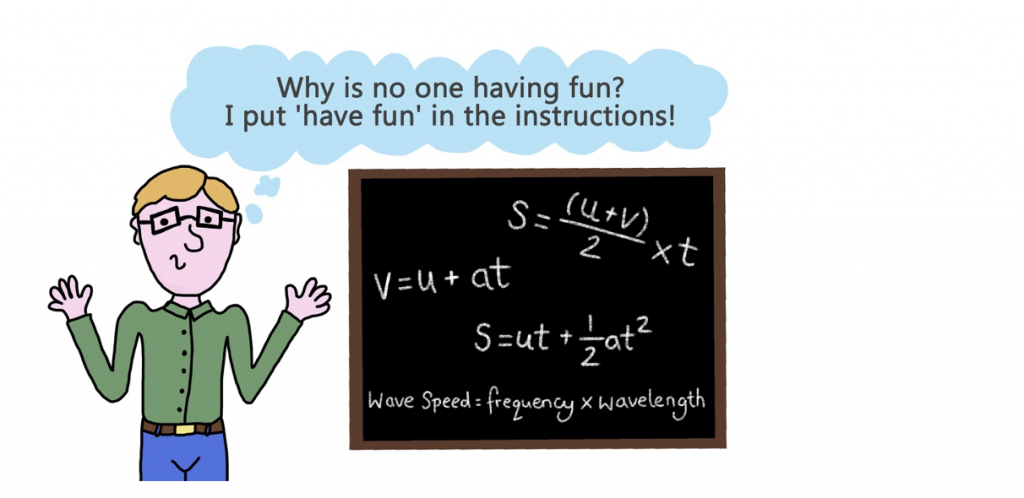
Tricky Physics: What’s Fun Got To Do With It?
When Katherine Langford spoke to six GCSE Physics teachers about the challenges encountered by children in the classroom, they all mentioned the use of fun approaches to learning. Thanks to The Open University’s spaces for interdisciplinary conversations between doctoral students, this caught Emily Dowdeswell’s attention. Emily is currently researching children’s perceptions of ‘fun’ in learning within the RUMPUS research group. While fun is often mentioned in interview data, the concept itself is typically taken for granted, or at face value. Are education researchers and practitioners missing a trick by not engaging with “fun” more deeply?
Should studying Physics be more fun? Or is fun simply too inconsequential for ‘hard’ subjects like Physics? The teachers interviewed engage their students by making Physics more fun and approachable. One teacher said, “I feel strongly that if children aren’t enjoying a lesson, they’re not going to learn it. If the class are bored stiff by what you’re doing, nothing is going in”.
What Makes Physics Tricky?

Still taken from video by Katherine LangfordIt’s no secret that some Physics topics are particularly tricky for students to understand. Mukesh Tekwani, a retired college teacher with 35 years of experience, discussed this in his 2020 blog post, arguing that once you know why students find topics difficult, you can work your way to make them easy, interesting, and useful. So, why is Physics often tricky to students?
All the teachers interviewed mentioned three topics – electricity, forces, and radioactivity – that students frequently find tricky. However, identifying why these topics are tricky was more problematic. Analysing the interviews revealed 55 interconnected and subtle factors that the teachers discussed as barriers to students learning Physics. These included:
- Misconceptions are difficult to get rid of as students often reject scientifically accurate concepts in preference of keeping their own incorrect ideas
- Many Physics concepts are abstract or difficult to picture
- Past teaching (particularly at primary school) can cause misconceptions
- Students do not have the Maths skills needed
- Students often fail to make links between related concepts
- Misconceptions can be caused by language (e.g., the nucleus of an atom being confused with the nucleus of a cell in Biology)
- Misconceptions can be caused by popular culture, like films
- Simple concepts can link to difficult concepts
- Physics concepts are often counterintuitive and conflict with students’ everyday experiences
- Even scientists don’t fully understand some concepts yet

Still taken from video by Katherine LangfordSeveral of the 55 factors related to students’ attitudes towards Physics. Two of the main attitude factors were that Physics is hard and that Physics is boring. According to one teacher, students who find Physics difficult sometimes “automatically think that they can’t do it”. Often students believe Physics is the hardest of the sciences. Some convince themselves Physics is difficult before they enter the classroom. Two teachers discussed how students switch off from learning if they do not see the point of the lesson. This attitude is particularly evident amongst students who have decided not to continue with Physics beyond GCSE.

Still taken from video by Katherine LangfordSo, many complex and interrelated factors affect Physics learning. Student attitudes regarding Physics being difficult and boring negatively impact their learning. A study by Jennifer DeWit, Louise Archer, and Julie Moote explores what insights might be gained from students themselves. Their study confirms the influence of cultural assumptions around Physics leads many students to conclude that Physics ‘is not for me’. Highlighting that participation in post-compulsory Physics increasingly matters for both economic and equity reasons, they concluded that making changes to the way Physics is taught and experienced in the classroom was a priority.
Using Fun to Change Attitudes to Physics

The teachers interviewed use fun experiments and demonstrations to change how students experience Physics. Several teachers mentioned collecting resources – particularly videos and online materials – to aid student understanding in an enjoyable way. Another strategy involved offering real-life examples to demonstrate that Physics is relevant to their everyday life. The teachers invest in these practices– that are often time-consuming – because they feel student enjoyment is linked to their motivation which impacts their understanding. So, is their faith in fun approaches to learning justified by research? What evidence is there to show fun is having any impact at all?
Peter Gray noticed the concept of ‘fun’ emerging repeatedly during his time as Research Fellow of the Early Professional Learning (EPL) project. He described a broader trend to attach fun to Physics without any meaningful engagement into its usefulness as a concept to teachers. Gray argued that fun played a part in the classroom ecology of teaching and learning whether teachers invested in its creation or not. The study underlined that fun was missing from the language of educational policymakers, and that fun was often positioned as disruptive. Fun was linked to intrinsic motivation and could be combined with effective learning as the antithesis to boring, ineffective learning. Even typically hard subjects could be fun, so that the teaching rather than the topic was crucial.
The debate regarding the usefulness of fun is reflected in a 2020 study into fun in online learning. The majority of students agreed that enjoyment, happiness and fun were important to effective learning. Yet, 19% of students also agreed that fun activities can get in the way of learning. Like Gray, Ale Okada and Kieron Sheehy discussed how fun can be positioned as transgressive, embraced by some but seen as an unnecessary distraction by those who adopt traditional transmission views of learning. This highlights the need for further research to ensure that well intentioned attempts to make learning fun don’t backfire and cause students to become less engaged.

Image by Katherine LangfordAll six teachers interviewed noted that student attitudes towards Physics influenced their learning. They are clearly aware of the importance of student enjoyment and its link to motivation and are prepared to invest in potentially time-consuming activities despite the pressures on their time.
However, fun is under-researched, as past classroom research has shown that what teachers think is fun is not necessarily the same as what students find fun. Nor do we know what the impact of fun is clearly. While the interviews are a preliminary study, the findings resonate with the wider literature. So what do these teachers now need from education research? How can we support them to change perceptions about Physics? Perhaps we need to challenge our perceptions of fun being frivolous and convince leadership and policymakers to allow teachers the time to invest in fun.

Emily Dowdeswell
2nd Year PhD Student
Emily Dowdeswell is approaching the end of her first year of doctoral research at the Open University’s Faculty of Wellbeing, Education and Language Studies (WELS).
Her area of study includes the intersections between anthropology, the arts, creativity and education.
You can find out more about Emily’s research at http://wels.open.ac.uk/rumpus or on Twitter https://twitter.com/intracommons

Katherine Langford
PhD student at the Open University's Faculty of Arts and Social Sciences (FASS)
Katherine Langford, BSc (Hons), MBPsS, is a third-year
Katherine Langford
part-time PhD student at the Open University's Faculty of Arts and Social Sciences (FASS). She is researching how secondary school students develop an understanding of especially tricky Physics topics including what intuitive theories, common problems, and misconceptions they have.
Orcid: https://orcid.org/0000-0003-0080-6023
References and Further Reading
DeWitt, J., Archer, L. & Moote, J. (2019) “15/16-Year-Old Students’ Reasons for Choosing and Not Choosing Physics at A Level”. International Journal of Science and Math Education 17, 1071–1087. https://doi.org/10.1007/s10763-018-9900-4
Gray, P. “Fun in theory and practice: new teachers, pupil opinion and classroom environments” in McNally, J., & Blake, A. (Eds.). (2009). Improving Learning in a Professional Context: A Research Perspective on the New Teacher in School (1st ed.). Routledge. https://doi.org/10.4324/9780203867020
Okada, A., & Sheehy, K. (2020). “Factors and Recommendations to Support Students’ Enjoyment of Online Learning with Fun: A Mixed Method Study During COVID-19”. Frontiers in Education (Lausanne), 5, Frontiers in education (Lausanne), 2020-12-01, Vol.5. https://doi.org/10.3389/feduc.2020.584351
Chitson, S. (2014) “Why I won’t be studying physics at A-level”. The Guardian retrieved at https://www.theguardian.com/education/mortarboard/2014/jul/03/why-i-am-dropping-physics-a-level-student
If you want to find out more about teaching tricky topics, then you may be interested in this free OpenLearn course.
